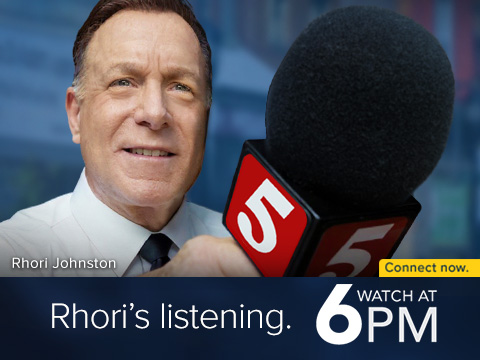MT JULIET, Tenn (WTVF) — In the wake of COVID-19, medical professionals are practicing social distancing and using different ways to interact with patients.
Many are using telehealth, which is a virtual way to keep their appointments. But some professionals tell NewsChannel 5 insurance providers are not covering telehealth as proper treatment when it comes to different kinds of therapy.
Professionals at Lyttle Fox Therapy in Mt. Juliet treat children with special needs by offering occupational, physical and speech therapy.
"So we’ve worked out telehealth diligently over the past couple of weeks to get it up and running, but are having some difficulties with insurance," said Niki Fox.
Fox partnered with Sharon Lyttle to start their therapy business in Mt. Juliet fifteen years ago.
Niki Fox says after fighting with the state to prescribe telehealth appointments, the new battle is now with insurance providers.
"As this point, one of our insurance providers is telling us that we’re okay to go ahead and bill telehealth but we’re getting very different information in regards of coding and billing goes," said Fox.
Fox said if matters aren’t fixed it could mean her staff won’t get reimbursed and her patients could lose out on much needed treatments. Fox says insurance providers tell her they should have the issues fixed in the coming weeks.
"We don’t really have a couple of weeks, to really be able to continue to provide these services for these kids and be able to support our therapists and help them support their families - we need this taken care of as soon as possible," said Fox.
Staff at Lyttle Fox Therapy says they're in communication with legislators and other clinic owners in efforts to streamline the necessary changes.
MORE TENNESSEE COVID-19 COVERAGE
- Mask mandate, capacity restrictions lifted in Nashville; what you need to know
- Tennessee, Metro to offer COVID-19 vaccine to children 12-15 years old
- Nashville's COVID-19 testing centers to adjust operating hours
- Walmart pharmacies in Tennessee now offering COVID-19 vaccines
- Donate to the COVID-19 Middle Tennessee Emergency Response Fund
See all our coronavirus coverage here
COUNTY-BY-COUNTY CASES IN TENNESSEE
What is COVID-19 (a.k.a. the new coronavirus?)
According to the World Health Organization, coronaviruses (CoV) are a large family of viruses that cause illness ranging from the common cold to more severe diseases. Examples include the Middle East Respiratory Syndrome (MERS-CoV) and Severe Acute Respiratory Syndrome (SARS-CoV). A novel coronavirus (nCoV) is a new strain that has not been previously identified in humans. COVID-19 stands for "Coronavirus disease 2019," which is when this strain of the coronavirus was discovered.
What are the symptoms?
The CDC says patients confirmed to have the 2019-nCoV reportedly had mild to severe respiratory illness with:
- Cough
- Shortness of breath or difficulty breathing
Or at least two of the following symptoms:
- Fever
- Chills
- Repeated shaking with chills
- Muscle pain
- Headache
- Sore throat
- New loss of taste or smell
At this time, the CDC believes symptoms could appear as soon as two days after exposure, or as long as 14 days.
Prevention
The CDC is recommending "common sense" measures such as:
- Wash your hands often with soap and water for at least 20 seconds. If soap and water are not available, use an alcohol-based hand sanitizer.
- Avoid touching your eyes, nose, and mouth with unwashed hands.
- Avoid close contact with people who are sick.
- Stay home when you are sick.
- Cover your mouth and nose with a cloth face cover when around others.
- Cover your cough or sneeze with a tissue, then throw the tissue in the trash.
- Clean and disinfect frequently touched objects and surfaces.




